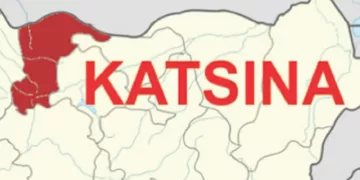By expert opinion, it is trite to posit that the harsh economic environment in Nigeria is affecting, adversely, small and medium-scale (SME) enterprises. If reports from Manufacturers Association of Nigeria (MAN) is anything to go by, bigger and more established businesses are not spared this trend that is jeopardizing the realization of projections for growth across all sectors of the economy,
The emphasis on SMEs is deliberate because they are mostly regarded as the engine of growth of any economy in any country. Economy watches are of the view that this disturbing development is traceable to a plethora of factors, ranging from multiple taxes, hostile policies that are not only perceptibly anti-business but also unstable. Included in these factors are high operational costs resulting from rising prices of inputs such as energy, spiraling inflation and poor infrastructure.
Over the years, multiple taxation has continued to hang on businesses in Nigeria like an albatross placed on them by seemingly cash-strapped government at all levels consumed by their own pressure to increase what is loosely referred to as internally generated revenue (IGR). Some of these taxes are considered statutory. But there are others, largely informal, that businesses are expected to pay to different groups, such as unions and local associations. These taxes are often arbitrary and not based on any legal framework. The cumulative effect of these taxes is that businesses are burdened by high tax bills, which reduce not just their profitability but also their expansion prospects which, in most cases, make survival a herculean task.
The second factor, in our opinion, is the inconsistencies in government policies that inadvertently constrain businesses, a situation that is made worse by innate corruption, bureaucratic inefficiencies buoyed by red tape. In spite of the pervasive propaganda on the ease of doing business in the country, it is still difficult for investors to obtain certificate of occupancy for landed property, licences, permits, and approvals as well as other legal frameworks necessary for the commencement of operations even after other official demands have been met.
This harsh reality is further compounded by the high cost of energy-gas, diesel, premium motor spirit (PMS) and electricity. Small-scale businesses in Nigeria and their bigger competitors are faced with this scourge of high energy costs. The cost of running a generator is high, and businesses often rely on generators because of the unreliable power supply from the national grid. In addition, the cost of raw materials and other inputs is high, which makes it difficult for businesses to operate profitably.
In the considered opinion of this newspaper, macroeconomic indices such as inflation, unemployment, interest and foreign exchange rates that impact on the economic growth have continued to affect businesses in a manner that makes it difficult for them to plan and operate profitably. Specifically, high inflation rate also means that consumers have less disposable income, which reduces demand for goods and services and ultimately increases the cost of living generally.
The story of the challenge posed by poor infrastructure like roads, ports, and airports is one that has defied explanation even with the huge budget they attract every year. The paucity of these inputs hamstrung effective business operations
We are compelled by the desire to see businesses thrive to also urge the government to take calculated steps to reduce the tax burden on businesses. This can be done by simplifying the tax system and reducing the number of taxes that businesses are expected to pay. In addition, the government needs to tackle corruption and bureaucracy in the business environment. We insist that the ease of doing business must cease to be a slogan. It must be pragmatically transformed into a dependable policy that can help investors, both prospective and actual.
The government also needs to invest in infrastructure, arrest the monster called inflation, implement business-friendly monetary policies that will stabilise the exchange rate.
More important to us as a newspaper, is for the Tinubu administration to fulfill its promise of making available N275 billion loan facilities to the manufacturing and MSMEs sectors. The President had in August approved the release of over N275 billion for the immediate resuscitation of the manufacturing and the Micro, Small and Medium-sized enterprises (MSMEs).
The move, we are reliably informed, was to strengthen the manufacturing sector, increase its capacity to expand and create good paying jobs. Based on this pronouncement, the government was expected to spend N75 billion between July 2023 and March 2024. But as it stands, the Small and Medium Enterprises Development Agency of Nigeria (SMEDAN) is still in the process of collecting the data of qualified enterprises. The delay is not good for businesses which are finding it more difficult by the day to remain in operation. We, therefore, suggest an enhanced facilitation of the procedure as well as an expeditious implementation of the policy for this category of businesses to survive and grow. The nation’s expansion and growth also depend on it.











